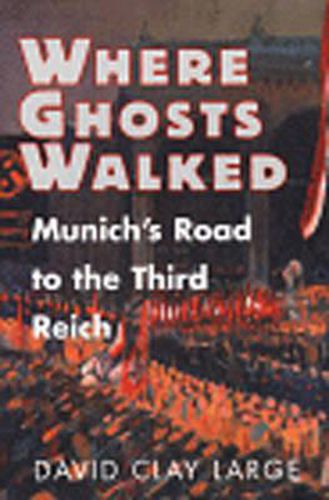Readings Newsletter
Become a Readings Member to make your shopping experience even easier.
Sign in or sign up for free!
You’re not far away from qualifying for FREE standard shipping within Australia
You’ve qualified for FREE standard shipping within Australia
The cart is loading…






Munich was the birthplace of Nazism and became the chief cultural shrine of the Third Reich. In exploring the question of why Nazism flourished in the ‘Athens of the Isar’, David Clay Large has written a compelling account of the cultural roots of the Nazi movement, allowing us to see that the conventional explanations for the movement’s rise are not enough. Large’s account begins in Munich’s ‘golden age’, four decades before World War I, when the city’s artists and writers produced some of the outstanding work of the modernist spirit. He sees a dark side to the city, a protofascist cultural heritage that would tie Adolf Hitler’s movement to its soul. Large prowls his volatile world of seamy basement meeting places, finding that attacks on modernity and liberalism flourished, along with virulent anti-Semitism and German nationalism. From the violent experience of the Munich Soviet, through Hitler’s failed Beer-Hall Putsch of 1923 and on to his appointment as German chancellor in 1933, Large unfurls a narrative full of insight and implication.
$9.00 standard shipping within Australia
FREE standard shipping within Australia for orders over $100.00
Express & International shipping calculated at checkout
Munich was the birthplace of Nazism and became the chief cultural shrine of the Third Reich. In exploring the question of why Nazism flourished in the ‘Athens of the Isar’, David Clay Large has written a compelling account of the cultural roots of the Nazi movement, allowing us to see that the conventional explanations for the movement’s rise are not enough. Large’s account begins in Munich’s ‘golden age’, four decades before World War I, when the city’s artists and writers produced some of the outstanding work of the modernist spirit. He sees a dark side to the city, a protofascist cultural heritage that would tie Adolf Hitler’s movement to its soul. Large prowls his volatile world of seamy basement meeting places, finding that attacks on modernity and liberalism flourished, along with virulent anti-Semitism and German nationalism. From the violent experience of the Munich Soviet, through Hitler’s failed Beer-Hall Putsch of 1923 and on to his appointment as German chancellor in 1933, Large unfurls a narrative full of insight and implication.